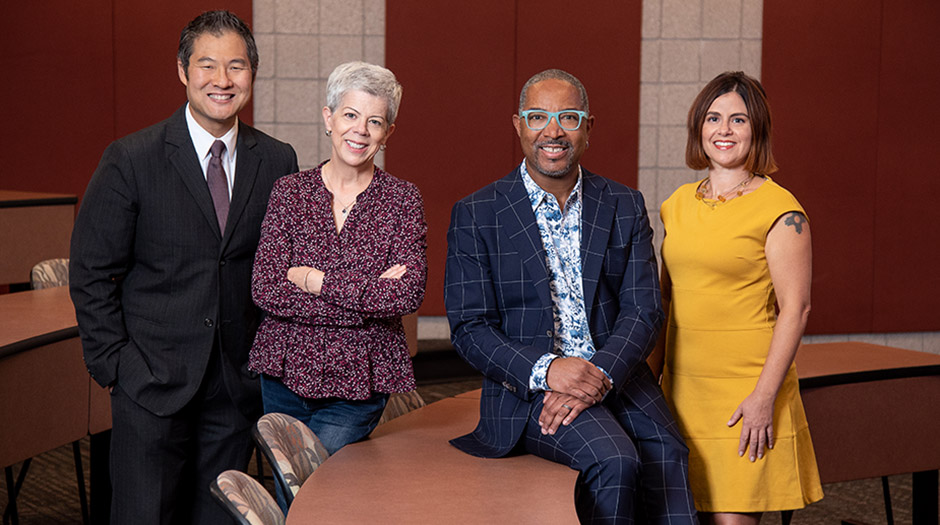Let the Conversation Begin
Race, Gender & Policing program encourages thoughtful discussion, substantive action on a national conundrum

Here’s a shocking number: 685,724.
That was the number of times that the New York City Police Department performed a stop-and-frisk in 2011, according to the New York Civil Liberties Union. Even more startling: Almost 85 percent of the individuals whom officers stopped and interrogated were black or Latinx — with the vast majority deemed to be innocent.
It’s those types of statistics, and the desire to change them, that led Professor Frank Rudy Cooper to the create the Race, Gender & Policing Program at the UNLV William S. Boyd School of Law.
Now in his second year as a Boyd professor, Cooper has long been interested in the three-pronged subject, having written a number of articles on the topics, with a particular intellectual passion for identity and policing. The driving force for the program, which he directs, was the ongoing national conversation on police practices.
"It was sparked by a number of events during the last five years," Cooper says. "Most notably, the declaration that the NYPD stop-and-frisk program was [deemed] unconstitutional in Floyd v. the City of New York, a 2013 Southern District of New York court case."
While the national discourse on policing was the impetus for Cooper to launch the program, it was conversations he had last fall with Addie Rolnick and Elizabeth MacDowell — fellow Boyd Law professors and co-facilitators of the program — that really got the ball rolling. Together, the trio discussed looking at the interconnected topics of race, gender, and policing with a critical eye — namely, how to work with both activists and law enforcement to create significant and positive change.
That led to a panel discussion of national experts that Cooper spearheaded in April. "It was an introduction to the program, where we discussed topics about immigrants and criminal law, policing, and sexual assault," Cooper says. "We even talked about collective bargaining and how that affects police accountability, [as well as] policing in public schools— that gives a sense of how broadly we want to explore this."
That exploration will continue throughout the academic year, as Cooper, Rolnick, and MacDowell — along with board members Stewart Chang, Michael Kagan, and Emily Troshynski — will welcome speakers and host panels about once a month, with events taking place both on the Boyd campus and in various community settings. These discussions will consider such topics as the impact of police violence on a loved one, best practices for police de-escalation, and relationships between policing and gender, which is a linchpin of the Race, Gender & Policing Program.
A larger, and equally important, goal is for the program to serve as a bridge between the police and the community.
"One way of thinking about it is, how is the law enforced — is it enforced the same regardless of the race of different people? Or is it enforced in a way that’s sensitive to meaningful differences between people? How does race and gender [affect] that?" Cooper says. "We’d particularly like to have some of these events out in the community, [such as in] public libraries and community centers.
"We like the idea of inviting the students out into the community and inviting the community to meet with law enforcement in spaces that feel, hopefully, safe for everybody."